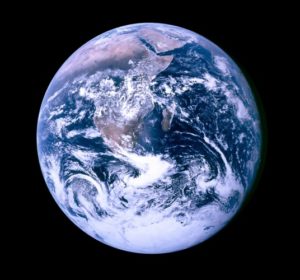Porezi na meso prijeko potrebni za klimatske ciljeve Pariza
Stranka za životinje poziva kabinet da uvede poreze na meso. Proizvodnja mesa izuzetno utječe na zagrijavanje Zemlje. PvdD član Frank Wassenberg predlaže da je veći porez na meso potreban kako bi ograničili emisiju CO2, te da zagrijavanje ostane ispod 1,5 stupnjeva.

Klimatske debate u Parizu prošlog prosinca nisu doveli do žustrih rasprava. No, dogovoreno je da zemlje pokušaju emisiju stakleničkih plinova ograničiti tako da porast temperature zadrže ispod 2 stupnjeva, te da ne prelazi 2,5 stupnjeva. Zemlje mogu same odlučiti kako će ograničiti emisiju plinova.
Govedarska industrija je jedna od najvećih zagađivača po pitanju emisije stakleničkih plinova izjavila je Svjetska zdravstvena organizacija. Diljem svijeta govedarska industrija proizvede 7,000,000,000,000 kilograma stakleničkih plinova. Dok nizozemska vlada pod izlikom klimatski prihvatljive poljoprivrede pokušava zataškati patnju životinja, najjednostavniji i najlakši način za klimatske promjene je smanjenje broja životinja za uzgoj. To je moguće kroz usmjeravanje na biljnu prehranu i održivu poljoprivredu.
Član PvdD-a u vladi Frank Wassenberg: “Proizvodnja mesa opterećuje okoliš i pridodaje emisiji stakleničkih plinova. Mi u Nizozemskoj znamo cijenu koju zagađivač plaća. Bilo bi logično da to vrijedi i za meso. To je moguće putem poreza na meso. Nizozemska bi se priključila zemljama poput Danske. Danska vlada odlučila se na porez na meso jer je smatrala da nije dovoljno samo zatražiti od potrošača da jedu manje mesa.”
The Party for the Animals calls on the government to introduce a meat tax for the production of meat strongly contributes to global warming. Party for the Animals MP Frank Wassenberg claims that higher VAT should be levied on meat to reduce the CO2 emissions to such an extent that the warming will remain below 1.5 Celsius.

The Climate Summit in Paris last December did not lead to ruthless agreements. The countries did agree that they would attempt to reduce the emissions of greenhouse gases to such extent that the temperature rise would remain below 2 Celsius and preferably not higher than one and a half Celsius. The countries are free to choose how they will reduce CO2 emissions.
The World Health Organisations states that the livestock industry is one of the largest emitters of greenhouse gases. Worldwide, the livestock industry emits 7.000.000.000.000 kilo of greenhouse gas in total. While the Dutch government is attempting to greenwash animal cruelty in terms of climate-smart agriculture, the easiest and fastest way to achieve climate benefits would be to reduce the number of animals in the livestock industry. This can be achieved by adopting a more vegetal diet and sustainable agriculture.
Party for the Animals MP Frank Wassenberg: “The production of meat has an impact on the environment and contributes to the greenhouse effect. In the Netherlands we maintain the principle that the polluter pays. Logically, the same should apply to meat. It can be effected through a meat tax. The Netherlands would then be in line with a country like Denmark. The Danish government is considering to introduce a meat tax because they believe that just asking consumers to eat less meat is not enough.”